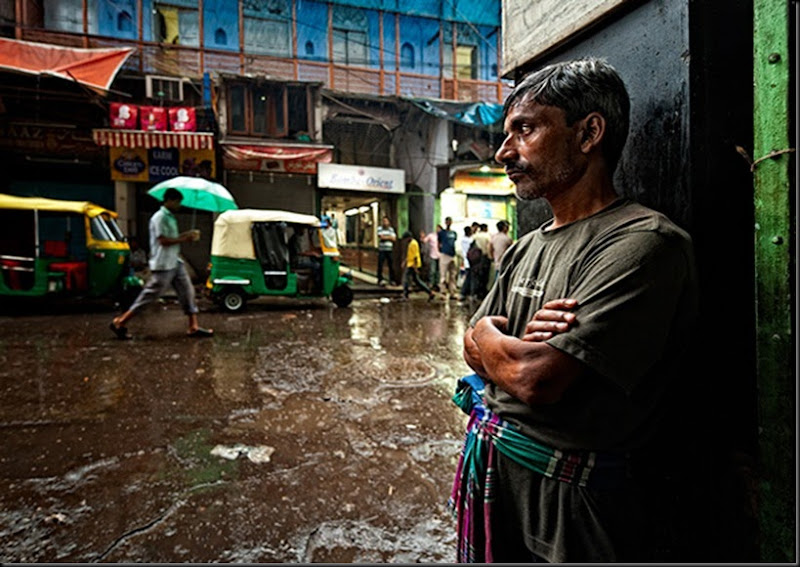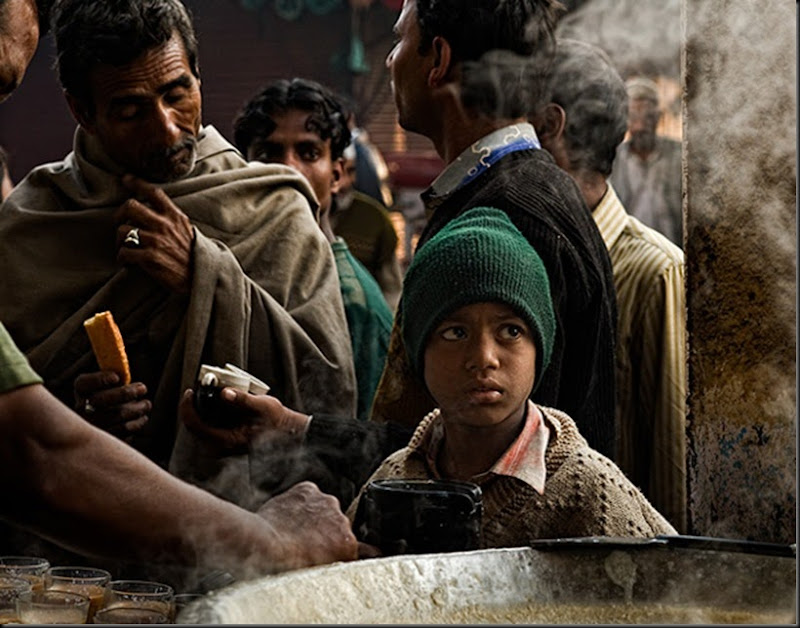
Hi Prateek, can you please introduce yourself?
I am an inquisitive person. I want to know about everything, whether it is about the human heart or a jet engine, a car’s exhaust or the art of Klimt. I’ve also been drawing and painting for as long as I can remember. Actually this led me to take up fashion design as a profession after a degree in chemistry. I joined N.I.F.T Delhi, immediately after college in 1989. Thereafter it was a career in fashion design till 2008.

How did you get into photography?
After N.I.F.T, I joined Mr. Suneet Varma, an eminent fashion designer, as his design assistant. During the course of my work I participated in various fashion shoots and found that I wanted to do photography as well. My first camera was a Nikon F3. I built a small darkroom at home and processed and printed B&W films there. My chemistry background led me to experiment with various combinations of developers. Altering ratios of Metol and Hydroquinone gave me interesting effects. But later due to career compulsions, photography took a back seat and I plunged full time into the business of fashion design. Photography did not progress beyond just a hobby. It was more important for me to run my studio successfully.
In 2008 I decided to pursue photography seriously and make it into a profession. I was in a position to do so. So the last four years have been completely dedicated to photography and painting.

In your words what makes Street Photography so special?
A street is outside your home, outside your comfort zone and there is world out there to experience. Outside there is air, light, conversations, noise, pain, prejudice, filth, justice, injustice and a civilization which you would not have experienced otherwise. A camera in your hand makes you see and experience. That makes street photography so special.

How do you choose your subjects on streets?
Strange as it may sound, I don’t choose my subjects. I go out to experience people and their life. A successful picture is that moment which is kind enough to tell me its story. It’s when all the elements of light, texture, action and personality come together. It happens rarely, but it does happen.

Most of your pictures are Environmental Portraits any reason behind that?
I think it is a subconscious thing. I believe a person’s face is a true reflection of the place he is at that moment. So whoever I have shot seems to render his surroundings with his expression. I like the term ‘Environmental Portrait’.

In your pictures the titles too play a great role. How do you think titles help an image?
The title is important to me. It connects me emotionally to the picture. It also connects my life to my subject’s. I believe that an image is first an individual. So it must have a title. Only then can it be a part of a family, a culture, a society and a civilization.

How do you choose the Decisive moment?
I don’t choose a decisive moment, but while framing I try to position myself according to light, shadows etc. After all I am out to seek a moment of visual climax. A good picture is also a matter of chance. One has to practice hard to grab that chance with the best available tool and a point of view.

In your language what it takes to make a Good Photograph?
A good photograph is complete in itself. It’s only language must be its content. If one needs to prop it with fancy words or explanations, then it is not good enough for me. It has to excite me visually. Like good music, it will transcend language and cultures.

Please choose one picture from your gallery and share the story behind the making.
The one picture which I love is ‘Veer Bahadur’. It was a January morning and I was roaming the streets of old Delhi when I found this little boy, shivering and soaking the early morning sun. He had just taken a bath and was standing against a brightly painted mural of King Kong climbing the Empire State Building. The mural was an ad for a cement company. I was drawn to it visually and took the picture. When I asked him his name I was taken aback. His name was ‘Veer Bahadur’. For those who do not know Hindi, ‘Veer Bahadur’ translates to ‘Brave Brave’. Both the words have same meaning. Everything seemed to have fallen into place. The boy’s name emphasized by the picture of King Kong in the background, the light, the warm and cold colors coming together nicely. Later while processing the picture I saw another detail. The boy’s toenails were painted red. He also had vermillon painted on his feet. Surely he must have been a female character in a musical or something.

Can you share any interesting incident on street you encountered?
There have been many interesting incidents. But the most memorable one I remember happened at the streets of Barsana when I went there to take pictures of Holi three years ago. Barely 180km from Delhi, its culture shocked me. A man would approach a woman and sing the most vulgar and sexually explicit song to her. She, then would whack him with a bamboo rod and him, after taking the blow, would touch her feet, seek forgiveness and go away. This is all a part of tradition. Barsana and Nandgaon are famous for the ‘lathmar’ ( bamboo beating) Holi, but the language shocked me.

The best achievement/compliment you received so far?
This is when a senior photographer at 1x.com whose work I’ve admired all the time, told me that my pictures were an inspiration for her.

Which photographers have inspired you?
There are many. Salgado, Cartier Bresson, Raghu Rai, Raghubir Singh, Robert Frank, Richard Avedon. The list is endless. Actually I admire a lot of work; there is hardly any which I don’t like. There’s one photographer whom I would recommend whole heartedly and that is Codrin Lupei. You can see his work at 1x.com. He is not a street photographer but believe me he will take you on a different trip altogether with his ethereal images.

The best achievement/compliment you received so far?
This is when a senior photographer at 1x.com whose work I’ve admired all the time, told me that my pictures were an inspiration for her.

Finally any secrets/advice for aspiring Street Photographers?
My advice would be don’t limit your vision to ‘candid’ photography. Your pictures should capture the culture of the place where your subjects are the narrators of the story. A photograph must also express the smells and sound of the place. If you cannot hear the rain drops in a picture of rain, then you haven’t come back with a good picture. Be patient! A good picture is not an everyday event. Even the greatest of photographers select a few pictures from the thousands which they take in their assignments. Lastly, interact with the place. It will include having conversations, eating food and making friends with the local mongrels.

Thanks again for providing 121 Clicks with this opportunity to interview you. Any final thoughts for our readers?
There are no secrets. What eventually comes out is your relationship with the place. If you are only a tourist, then your pictures will look touristy. Give a place the time it deserves. Often I would simply sit down at a place and see how time, light and people change it so I need not keep walking, looking for interesting events. Try it. It works.
All images © Prateek Dubey
You can find Prateek Dubey on the Web :

Nessun commento:
Posta un commento